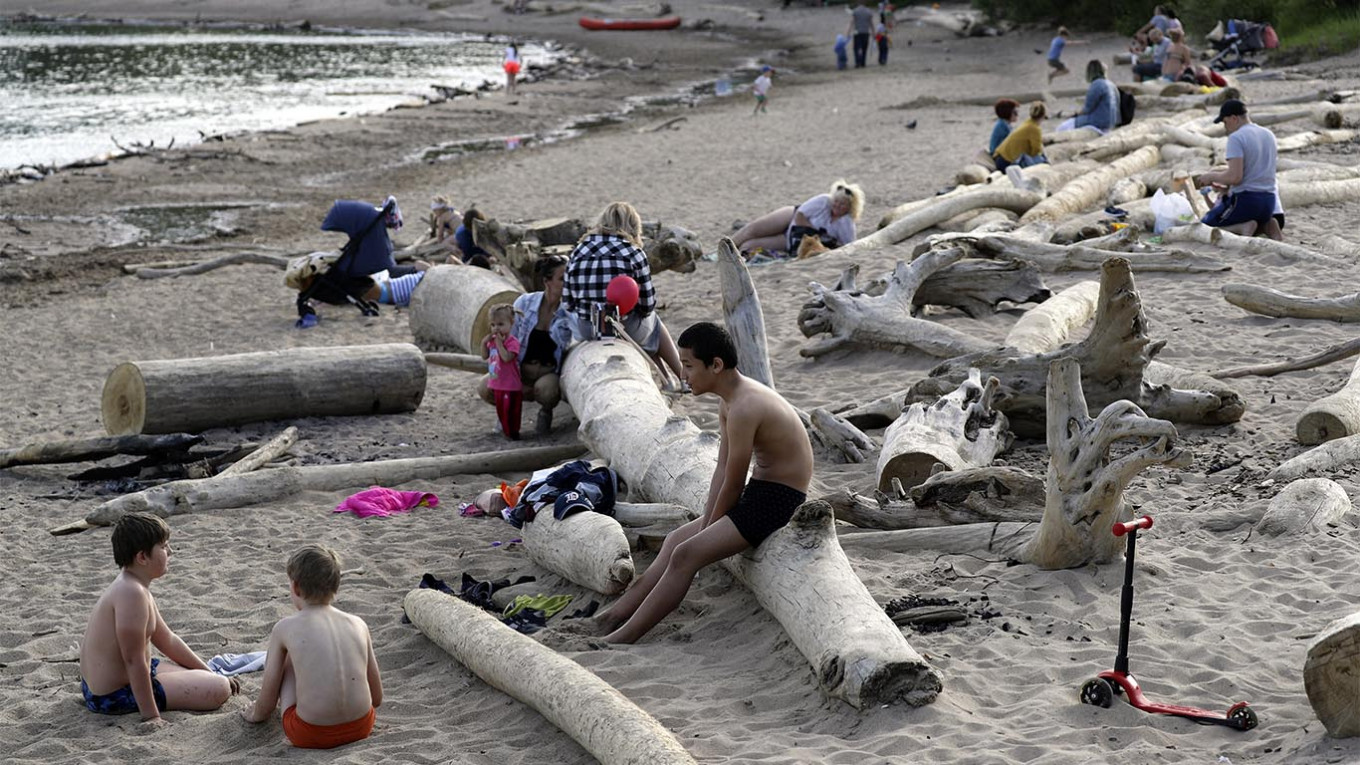Global warming is making hurricanes stronger, study says
Global warming is making hurricanes stronger, study says
Human-caused global warming has strengthened the wind speeds of hurricanes, typhoons and cyclones around the globe, a new study released Monday said.
These storms, collectively known as tropical cyclones, are some of nature's most powerful and destructive storms. Category 5 Hurricane Dorian, for example, laid waste to portions of the Bahamas last year as the storm's 185-mph winds cut through the nation like a buzzsaw.
Scientists studied 40 years of satellite images to reach their conclusions.
"Our results show that these storms have become stronger on global and regional levels, which is consistent with expectations of how hurricanes respond to a warming world," said study lead author James Kossin of the National Oceanic and Atmospheric Administration.
Global warming is caused by the burning of fossil fuels such as coal, oil and gas, which release greenhouse gases such as carbon dioxide into the Earth's atmosphere. This has caused the planet to warm to levels that cannot be explained by natural factors.
The study was led by scientists from NOAA and the University of Wisconsin and was published in the peer-reviewed journal Proceedings of the National Academy of Sciences.
https://www.pnas.org/content/early/2020/05/12/1920849117
Kerry Emanuel, a hurricane expert at the Massachusetts Institute of Technology who was not involved in the study, said the findings were “much in line with what’s expected,” according to the New York Times.
Scientists said that the chances of hurricanes becoming a Category 3 or higher have increased each of the past four decades. Much of the death and destruction from hurricanes comes from storms of Category 3 strength or higher, which are known as "major" hurricanes.
Global warming is making hurricanes stronger, study says
Human-caused global warming has strengthened the wind speeds of hurricanes, typhoons and cyclones around the globe, a new study released Monday said.
These storms, collectively known as tropical cyclones, are some of nature's most powerful and destructive storms. Category 5 Hurricane Dorian, for example, laid waste to portions of the Bahamas last year as the storm's 185-mph winds cut through the nation like a buzzsaw.
Scientists studied 40 years of satellite images to reach their conclusions.
"Our results show that these storms have become stronger on global and regional levels, which is consistent with expectations of how hurricanes respond to a warming world," said study lead author James Kossin of the National Oceanic and Atmospheric Administration.
Global warming is caused by the burning of fossil fuels such as coal, oil and gas, which release greenhouse gases such as carbon dioxide into the Earth's atmosphere. This has caused the planet to warm to levels that cannot be explained by natural factors.
The study was led by scientists from NOAA and the University of Wisconsin and was published in the peer-reviewed journal Proceedings of the National Academy of Sciences.
https://www.pnas.org/content/early/2020/05/12/1920849117
Kerry Emanuel, a hurricane expert at the Massachusetts Institute of Technology who was not involved in the study, said the findings were “much in line with what’s expected,” according to the New York Times.
Scientists said that the chances of hurricanes becoming a Category 3 or higher have increased each of the past four decades. Much of the death and destruction from hurricanes comes from storms of Category 3 strength or higher, which are known as "major" hurricanes.




